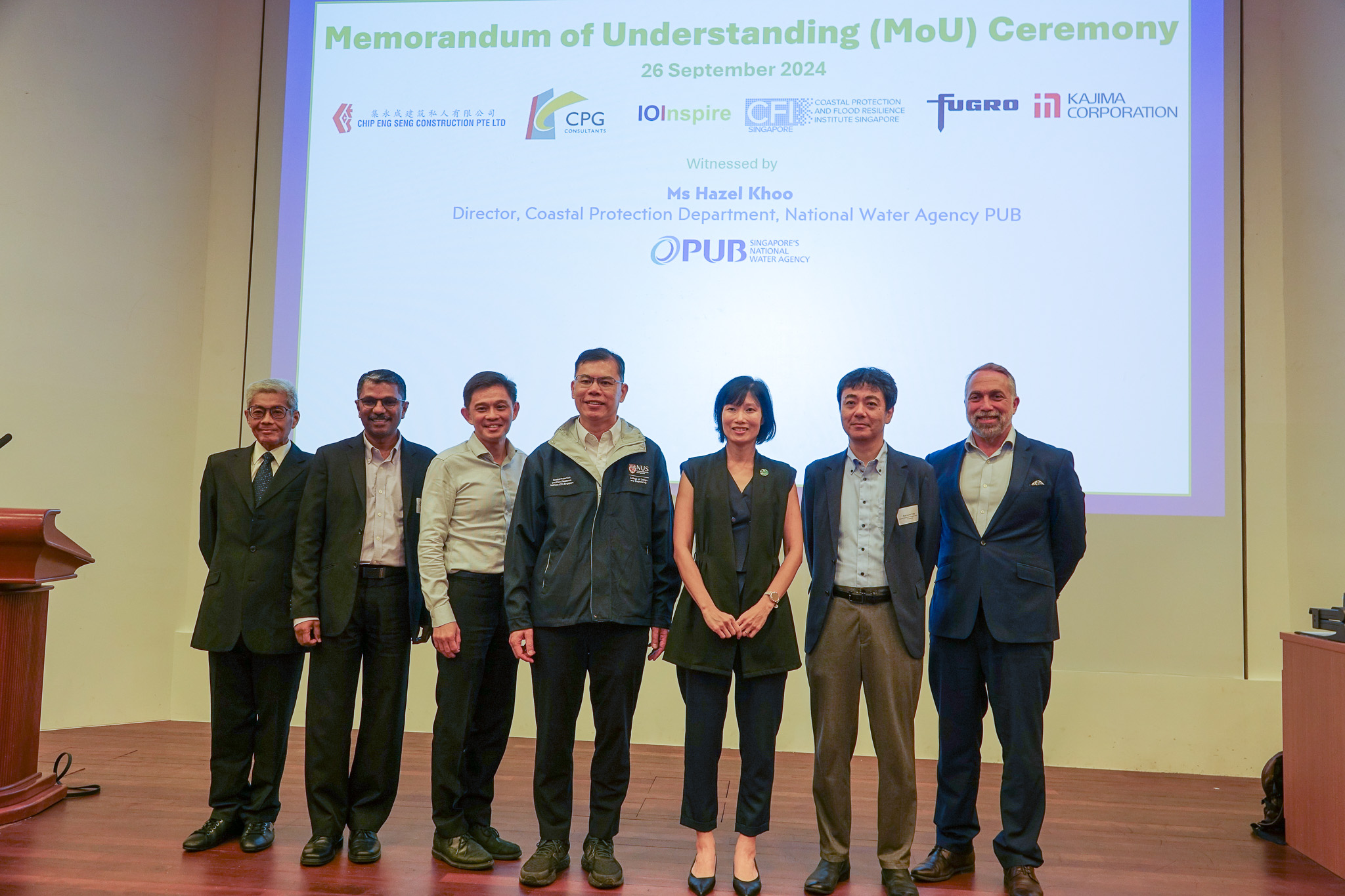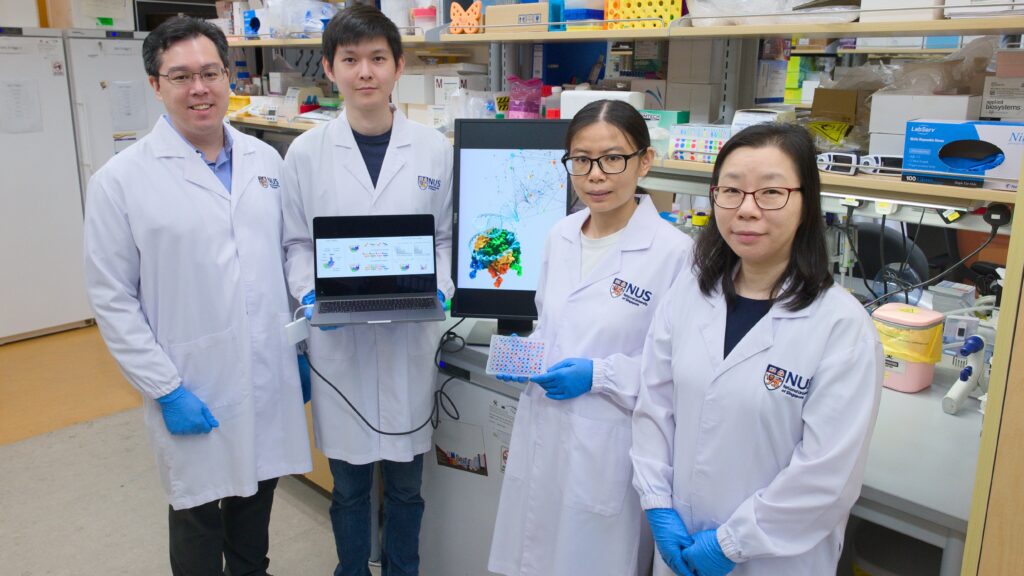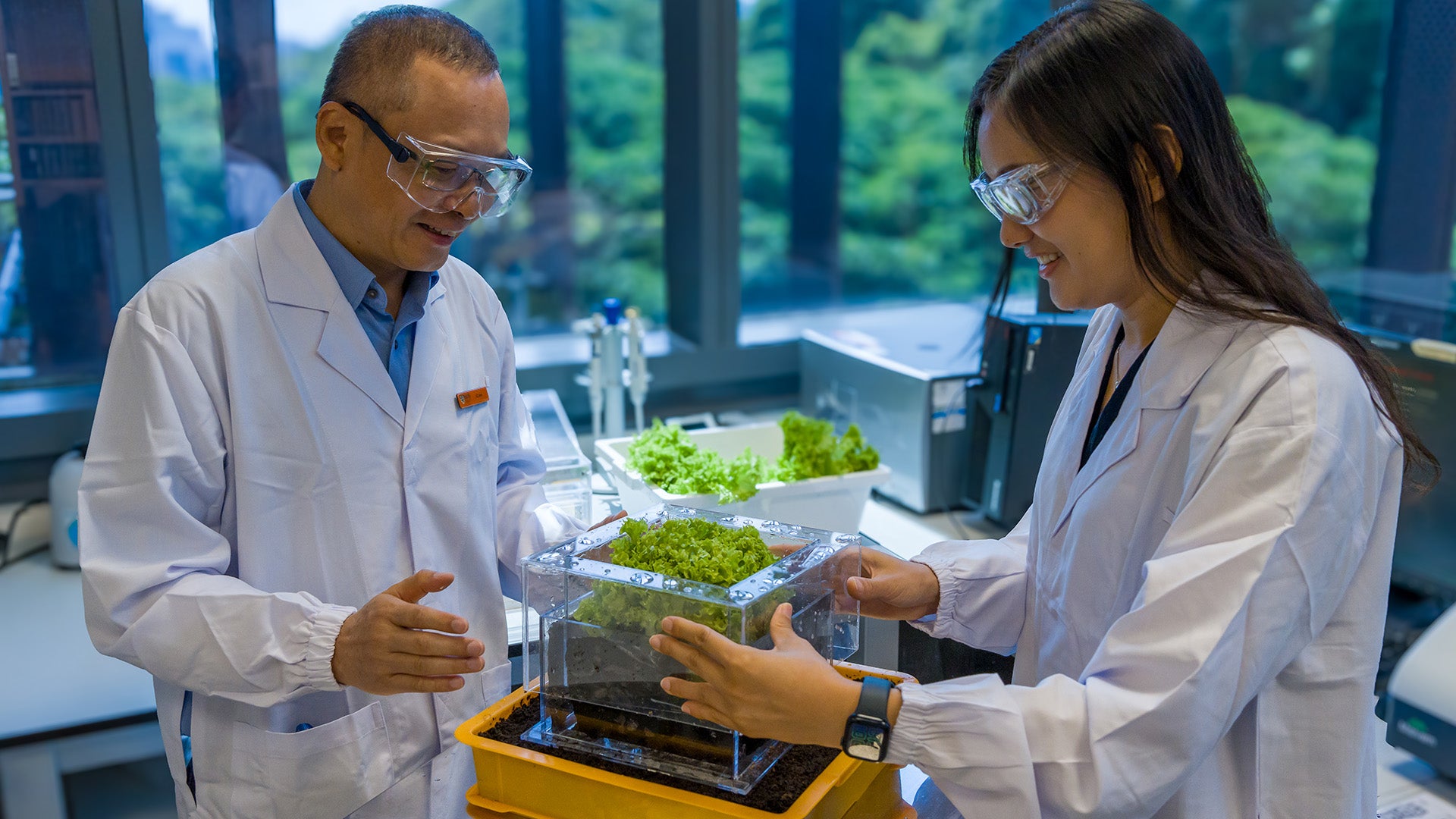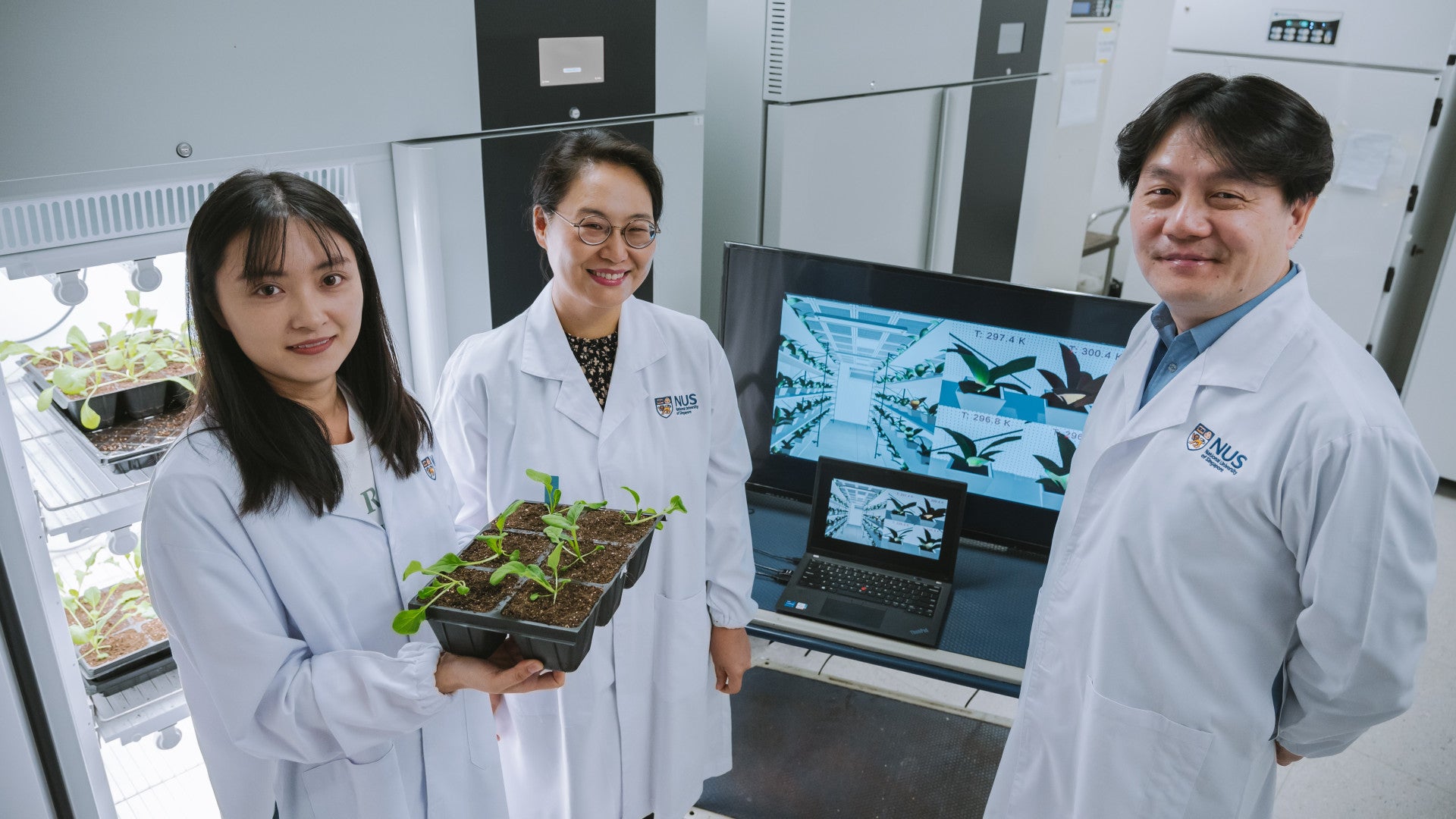RESEARCH IMPACT & COLLABORATIONS
CFI Singapore strengthens relationships with industry partners

The Coastal Protection and Flood Resilience Institute (CFI) Singapore, held their inaugural symposium on 26 September 2024, where they signed Memorandums of Understanding (MOUs) with five companies. The companies are Chip Eng Seng Corporation Ltd, CPG Corporation, Fugro, Kajima Corporation and Integral Omni Inspire Pte Ltd. The MOUs will help drive joint research and development opportunities for coastal protection and flood management solutions within the industry.
Touching on the significance of the partnerships, Professor Adrian Law, Executive Director and Director (Strategy, Partnerships and Technology Translation), said, “With coastal protection being a critical sector to combat climate change and sea level rise going forward, it is imperative that we explore ways to translate research into practical applications. The partnerships established with these companies will combine academia and industry expertise to enhance cooperation and support the development of coastal protection infrastructure going forward, and together explore the incorporation of innovative engineering solutions and integrated nature-based solutions.”
The Symposium also marks CFI Singapore’s first anniversary and their ongoing progress as they continue to shape the future of coastal protection and flood management in Singapore.
Read more here: https://cde.nus.edu.sg/news-detail/cfi-singapore-looks-to-strengthen-relationships-with-industry-partners/
Revolutionary technology to decipher complex protein interactions could potentially transform cancer diagnostics

Researchers from the NUS Institute for Health Innovation & Technolgy (iHealthtech), jointly led by Associate Professor Shao Huilin (Department of Biomedical Engineering) and Associate Professor Brian Lim (Department of Computer Science), have developed a technology that can unravel diverse protein interactions in cells using DNA barcodes.
The technology known as TETRIS can specifically identify and measure various interacting partners within large protein complexes. By mapping the intricate network of protein interactions in tumor cells, it reveals detailed molecular mechanisms that contribute to disease progression. This advancement allows for more accurate diagnostics, enabling rapid sub-typing of cancers and the identification of aggressive forms within just a few hours—something that was not feasible before.
Additionally, TETRIS offers crucial insights that help doctors customise treatment strategies for individual patients. By pinpointing the specific proteins and their interactions involved in cancer growth, it paves the way for targeted therapies that can enhance patient outcomes.
Read more here: https://news.nus.edu.sg/revolutionary-technology-to-unravel-complex-protein-interactions/
Solar-driven gel device to cut water use in urban farms

Urban farms are seen as a key part in building future food security. An innovative solar-driven hydrogel device, developed by researchers at CDE, could slash water wastage at urban farms making them more efficient and more sustainable.
The TEAD system captures and recycles water, using a hydrogel that absorbs moisture from the air at night and releases it during the day—saving up to 45 per cent of irrigation water.
The device, developed by Professor Li Jun (Biomedical Engineering) in collaboration with researchers at Shanghai Jiao Tong University, is designed to be compact and easy to integrate into urban farms, especially in space-constrained environments like Singapore.
Discover more about this technology and what it could mean for the future of urban farming: https://cde.nus.edu.sg/news-detail/solar-driven-gel-device-to-cut-water-use-in-urban-farms/
Elevating precision farming with innovative plant e-skin coupled with digital-twin monitoring system

A team of researchers from NUS have taken a significant step in advancing plant sensor technologies by creating a first-of-its-kind all-organic plant e-skin. Jointly led by Associate Professor Chengkuo Lee (Department of Electrical and Computer Engineering) and Assistant Professor Eunyoung Chae (Department of Biological Sciences), the e-skin allows for continuous and non-invasive plant monitoring. The data collected from such plant sensors can help to optimise crop yield and allow farmers to promptly respond to changes in plant environments and increased rainfall.
Read more here: https://news.nus.edu.sg/precision-farming-with-innovative-plant-e-skin-and-digital-twin
DID team debuts five new projects at Ars Electronica 2024

Congratulations are in order for the Interactive Materials Lab (Division of Industrial Design), which debuted five projects at Ars Electronica 2024. Held from 4 –8 September 2024, the prestigious media arts festival, touted as the biggest media arts festival internationally, was held at PostCity in Linz, Austria.
Led by Assistant Professor Clement Zheng, the team’s exhibition, titled Material Materials, explored familiar, everyday objects and their respective potential in building interactive artefacts in the future.
Asst Prof Zheng said, “Our goal at Ars Electronica was to find artistic ways to engage the public with the research that we do at the Division of Industrial Design. It was incredibly exciting to have showcased next to both established and new media art teams at Ars.”
Read more about the projects here: https://cde.nus.edu.sg/news-detail/did-team-debuts-five-new-projects-at-ars-electronica-2024/


